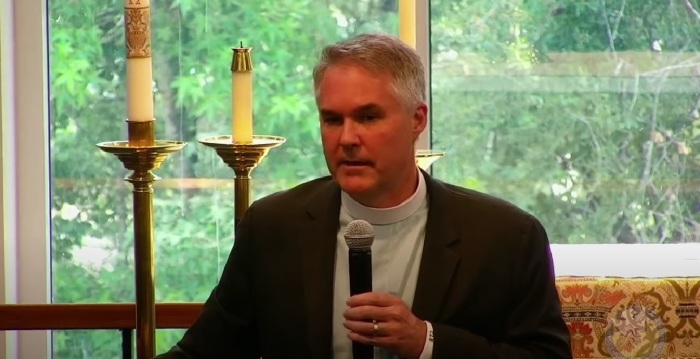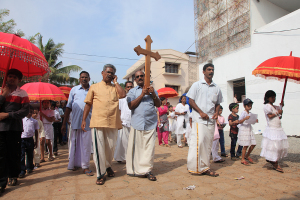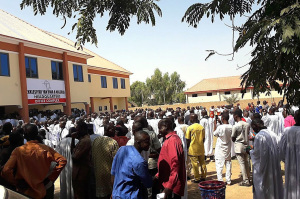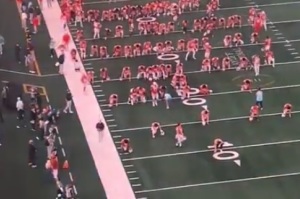Episcopal bishop facing fight over election promises to allow gay marriage if consecrated

An Episcopal priest whose election to bishop is being challenged has promised that, if put in power, he will allow for the blessing of same-sex unions in the diocese.
The Rev. Charlie Holt was twice elected bishop coadjutor for the Episcopal Diocese of Florida this year, only to have both election results formally challenged by delegates.
Holt released a statement on Tuesday regarding whether he would allow the blessing of same-sex unions and the ordination of people in same-sex relationships since one reported issue some have with the bishop-elect is his opposition to same-sex marriage.
“To unite with one another and the broader Episcopal Church, we must contend together to move beyond the things that divide us and set a new course in Christian discipleship, congregational renewal and community outreach,” stated Holt.
Holt explained that he would allow “each parish” to decide whether to bless same-sex unions, making it “a matter of conscience and context” in which gay marriage opponents should be respected.
“The pastoral conscience of clergy will be respected across theological difference. No one, progressive or traditional, will be forced, coerced or manipulated to hold or change a matter of conscience,” he said.
Holt added that “potential ordinands and candidates for employment will be welcomed into discernment and calling processes based on their gifts and call to ministry without discrimination.”
“We seek ministers who proclaim a life-changing gospel. Ordination will not be dependent on sexual orientation or political perspective but only on the church’s canonical process of discernment of the mystery of God’s call to sacred orders,” he continued.
For years, several dioceses of The Episcopal Church, including the Florida Diocese, were allowed to prohibit the blessing of gay unions if their diocesan leadership was opposed to it.
However, in 2018, the Episcopal Church General Convention passed Resolution B012, which required all dioceses to allow for same-sex unions, albeit with certain conscience protections for clergy opposed to gay marriage.
Holt cited Resolution B012 in his statement as authoritative, explaining that the conscience protections he was advocating are “in keeping with the spirit and intent of” the resolution.
“I would welcome the opportunity to implement these policies utilizing a collegial process. I am excited to begin a new era in the Diocese of Florida,” he added.
In May, Holt won an election to determine a successor to the diocese's current bishop coadjutor, the Rt. Rev. Samuel Johnson Howard, who intends to retire next year.
However, a group of 37 clergy and lay deputies argued that the vote was invalid, citing last-minute changes to the voting process and other complications.
In response, The Episcopal Church's Court of Review investigated the process and filed a report in early August that concluded that Holt's election had been improperly conducted.
"There is no doubt that the Diocese moved forward in a good faith effort to confront this last-minute challenge. However, as will be shown herein — and as was pointed out to the Diocesan leadership at the time — their decision to convene the Convention without a proper clergy quorum was procedurally and canonically problematic," reads the report, in part.
"As a result of that decision procedural norms were changed on the fly, and irregularities occurred. It is impossible to say whether any particular irregularity made a material impact on the outcome; however, when taken together these irregularities create seeds of uncertainty that call into question the integrity of the process."
A second bishop-coadjutor election was held in November, with Holt again winning with a vote of 56 clergy and 79 laity. The minimum needed to win was 56 clergy and 67 laity.
However, a group of 29 clergy and lay delegates who participated in the election disputed the results, arguing that the process was "fundamentally unfair" and included issues like unfairly excluding certain clergy delegates.
The 29 delegates protesting the second election for bishop coadjutor have passed the 25-delegate minimum required to file a formal objection against the results.





























